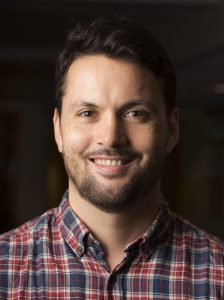
SAMMANFATTNING Även kriget har lagar som länder förbundit sig att följa. Trots det ser vi idag tilltagande kränkningar av även de grundläggande internationella regelverken i bl a Jemen, Syrien, Nigeria, Mali och Myanmar. Sjukhus bombas, civila utsätts för belägring och avrättas, kemiska vapen används. Dessutom hör vi i regioner som inte befinner sig i väpnad konflikt populistiska krav på att frångå grundläggande skydd åt krigsdrabbade medmänniskor.
Internationell humanitär rätt (IHL) är till för att, trots krigets brutalitet, sätta gränser för våldet och upprätthålla viss mänsklig anständighet genom att endast tillåta våld riktat mot militära aktörer. För att upprätthålla IHL krävs ansvarsutkrävande. Även om det är väpnade styrkor som utövar våldet är det viktigt att se att ansvaret också ligger hos de aktörer som iscensatt och står bakom våldet. I många fall – som i Syrien och Jemen – behöver t ex permanenta medlemmar i FN:s säkerhetsråd hållas ansvariga eftersom de ofta stöder någon part i de konflikter vars lösning blockeras i rådet.
I artikeln av Stephen Wilkinson på Diakonia redovisas både utmaningarna med IHL och hur Diakonia arbetar för att öka respekten för de regelverk som, trots allt, kan säkra mänsklig värdighet. Diakonia tror på arbete nerifrån och upp, utifrån mottot ”människor som förändrar världen”. Organisationen utökar nu arbetet med IHL med två nya resurscenter, för Syrien och Mali, vid sidan av det redan etablerade centret för Israel/Palestina. Genom gedigen kunskap och stöd till det lokala civilsamhället, jurister, journalister m fl. ska arbetet motverka brott mot IHL.
Ensuring human security in the most insecure of worlds
From Yemen, to Syria, Nigeria, Mali, and Myanmar to name just a few, armed conflict not only appears to be increasing in its regularity, but also is becoming increasingly shaped by continuous and serious violations of the most basic international standards. As we glance across the different contexts, we see attacks on hospitals, executions, civilian population placed under siege, increasing use of chemical weapons; in short the most basic previously accepted limitations on conduct during war increasingly threatened.
It must be said that human security is placed in peril by the mere occurrence of armed conflict but even war has rules. Yet when even those limited rules are bypassed, what hope is there of any community, town, state or country ever reconciling and moving towards peace when the basic notion of your enemy having any form of shared humanity is too often dismissed. In and outside of conflict, rising populism comes hand in hand with calls to bypass basic protections for the others, who we fear. When we fear for our security we often look to erode the very laws which protect our security: human rights and humanitarian law.
Role of international humanitarian law in protecting human security
The role of international humanitarian law is to place some humble limitations on conduct during war, yet war itself remains a violent means for whatever the intended ends. International humanitarian law merely provides some rules to an otherwise lawless endeavour. In general terms IHL is built upon a grand bargain that harm in conflict should be directed towards the military apparatus alone, in exchange for protection of civilian and those no longer engaged in fighting. As with most law the devil is in the detail, and IHL, whilst prohibiting direct attacks against civilians during hostilities, cannot protect all civilians from harm in the theatre of hostilities, or prohibit displacement per se, which is often the human instinct when our security is threatened. It merely looks to set out clear limitations of conduct during war, the bare bones of our common humanity. Yet even this limited legal tool, driven by a desire to merely limit the brutality of war, is being routinely bypassed in modern conflict. At times responsibility for such violations are all too easily laid at the feet of armed non-state actors, but all warring parties of various agendas, structures and philosophies are rarely innocent.
Who can help protect human security in war?
States that shaped and crafted IHL, most of which can be found in the 1949 Geneva Conventions, are also the ones formerly responsible for its implementation and respect. One key weakness of IHL is that it is essentially a self-policing regime, and even though there are mechanisms for warring parties and individuals to be held responsible for violations of these basic standards, too often mechanisms with teeth are blocked by political interests. The failure of the Security Council to act in any meaningful way with regards to Syria and Yemen can be laid at the feet of the permanent members of the Security Council. As each permanent member, in different guises, enters into global conflict, supporting one side or another, their willingness to be any kind of beacon of hope and place humanity ahead of self-interest has slowly dissipated.
People power
Whilst different in nature and scope, the recent #Metoo movements along with the student led movement following the shootings in the US, have perhaps given us all reflection on the necessarily of grass roots movement to help inspire change and address problematic structural issues. When it comes to respecting basic standards of human dignity in conflict, current evidence would suggest that a top down approach is ineffective. Instead the more that are empowered, to support, and protect these standards the better. These standards whilst developed by States are not for states alone, they belong to the people.
Change rarely comes from the top, and at Diakonia for many years we have been driven by the notion that “people change the world” not states or institutions. Whilst just one actors and one voice, we believe that with our new Global International Humanitarian Law Centre at Diakonia, we can be another voice, another actor, working to promote basic human security. Whilst our impact may be modest, we are currently engaged in three conflict contexts: Mali, Syria and Israel/Palestine, in addition to our international desk based in Stockholm. Each team will be able to provide a range of actors with detailed legal knowledge on an array of issues specific to that context; with the international desk also available to work with interested actors in particular in relation to conflicts where we currently don’t have a resource desk. To date we have worked with local and international actors, civil society organisations, local lawyers, journalists, visiting parliamentarians, affected companies, each of which has the potential to play a significant role in promoting adherence for international humanitarian law.
Engaging in promoting the respect of human rights and international humanitarian law is seen as a rather thankless task, with a sense of powerlessness in the face of not only gross violations of the law, coupled with self interest in those with real power. Yet we remain committed to the power of people, and continue in working to do all we can, if it means one less life is lost, one less school is bombed, then it must be considered a success. Even the little sparrow in hearing of the sky falling down still decided to lie on his back and place his feet in the air, proclaiming “we all have to do what we can”.

Fotograf: Martina Holmberg
Stephen Wilkinson
Global IHL-advisor at Diakonia
Vill du skriva en text där du kommenterar, diskuterar eller kritiserar detta inlägg? Kontakta ämnesansvarig redaktör.
Ansvarig redaktör: Gerd Johnsson-Latham, Senior redaktör

Lämna ett svar